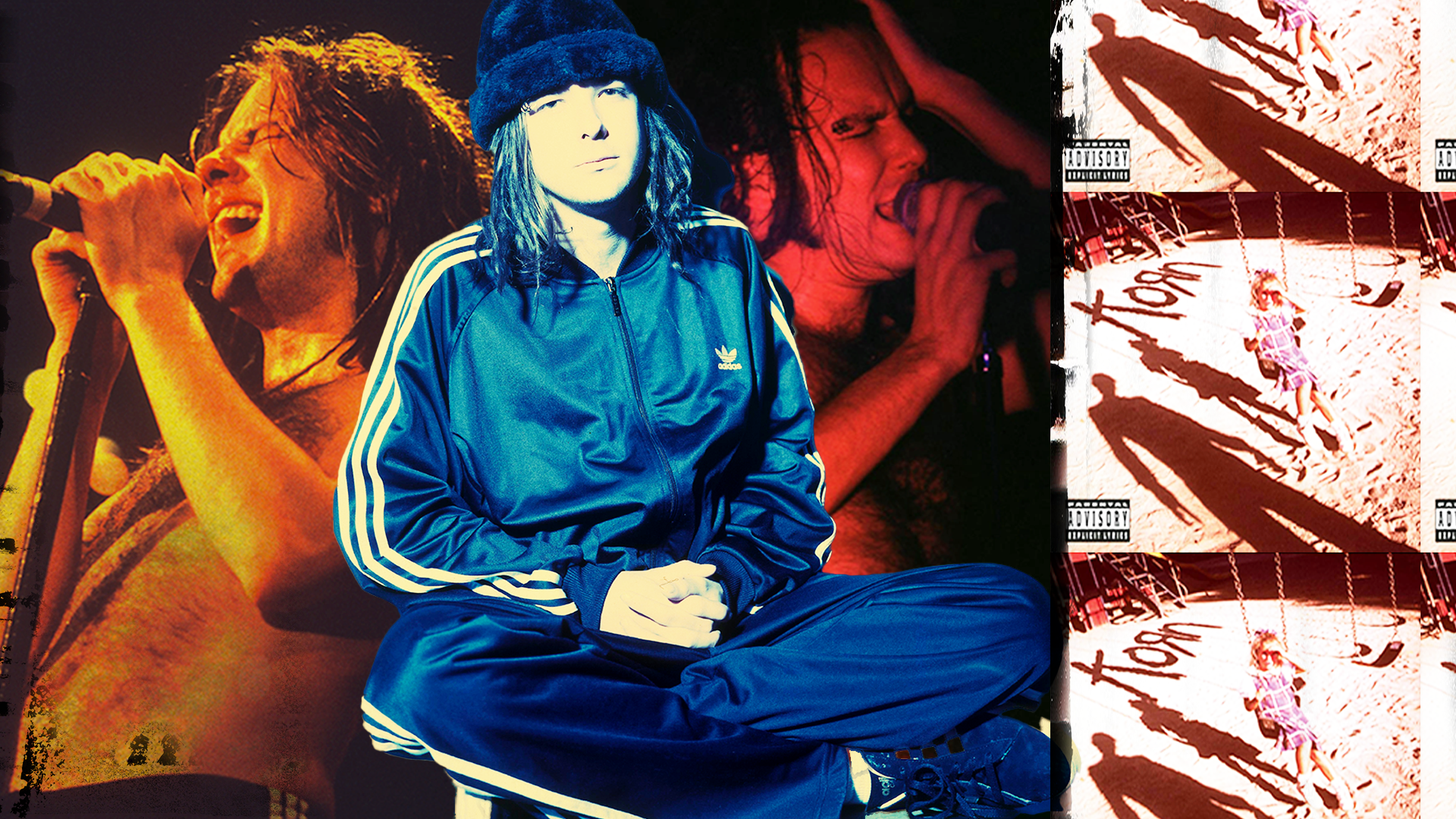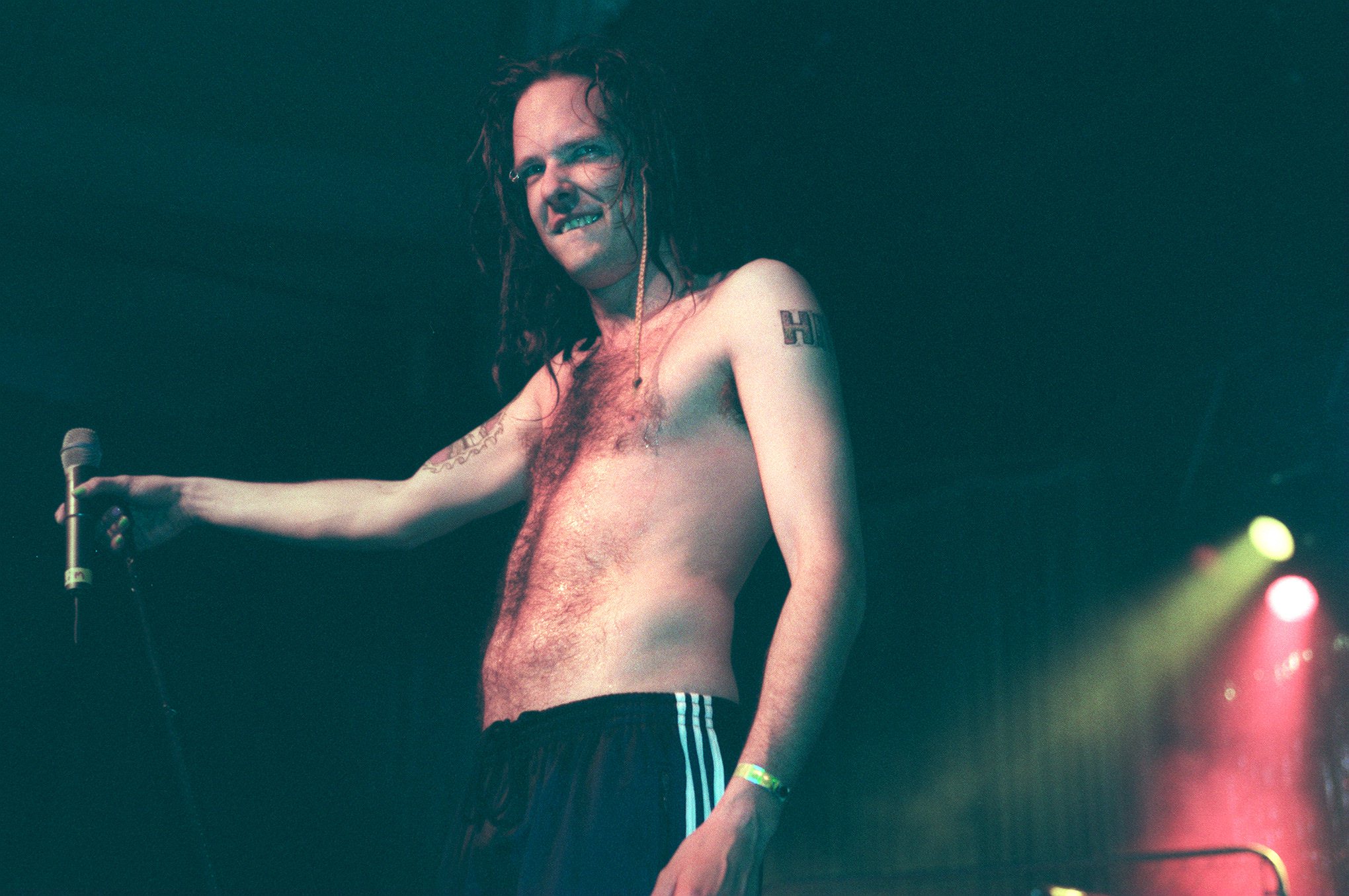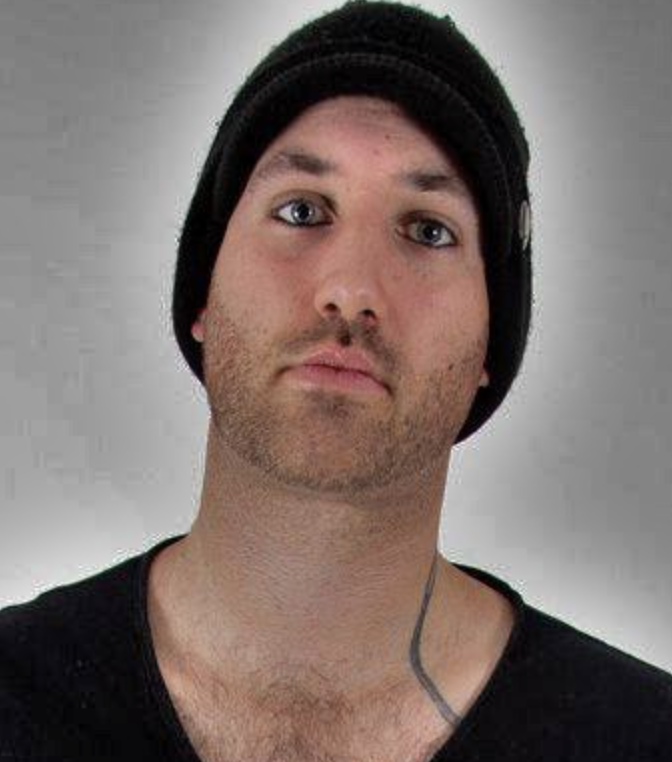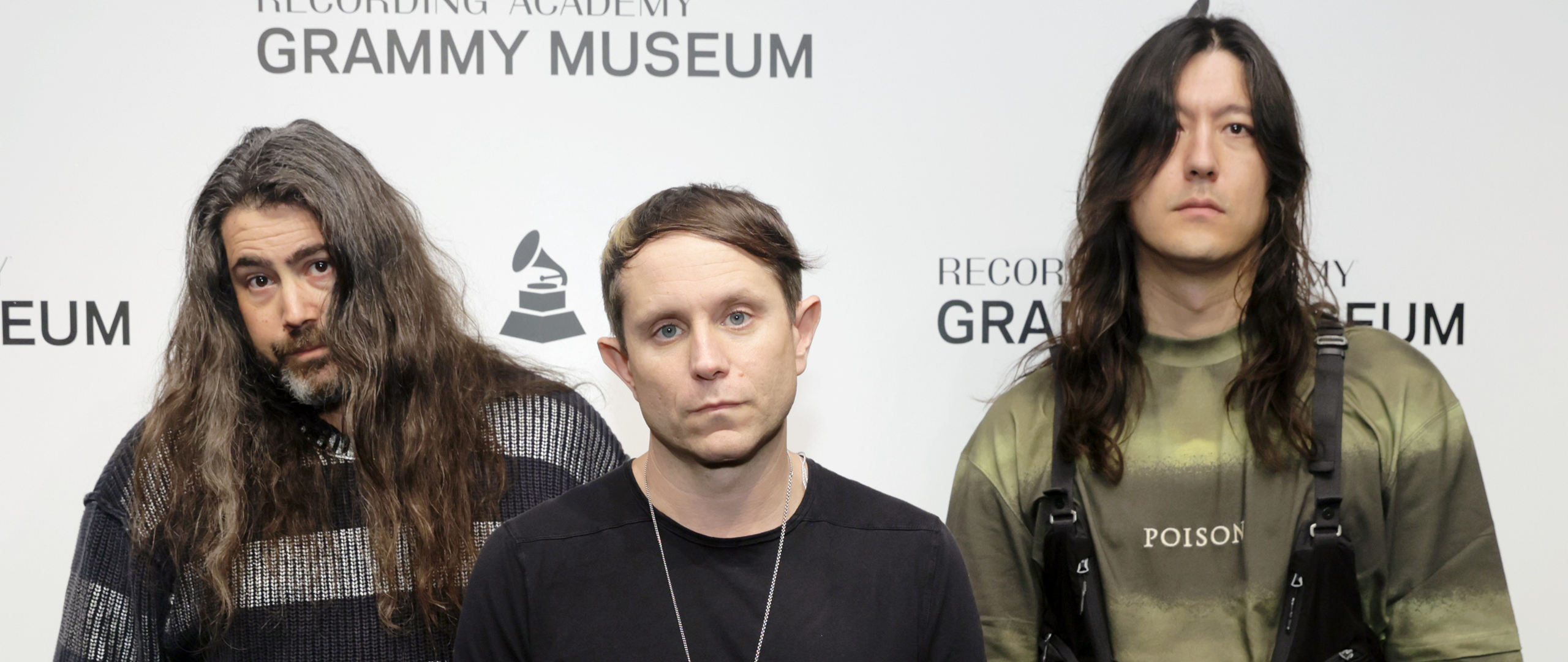"I was freaking out and bawling in the studio." Korn's classic debut album at 30: the weirdness, the trauma and the birth of nu metal
On October 11 1994, five misfits from Bakersfield, California would release an album that would change metal forever

Back in 1994, heavy music was in a transitional stage. Grunge had either wiped out or significantly dented the popularity of much of the thrash and glam bands that dominated the previous decade (although that scene was about to suffer its own traumatic fall from grace with the death of Nirvana’s iconic frontman Kurt Cobain). Plus, the emergence of gangsta rap, with its genuine sense of danger and a multitude of larger-than-life personalities, dragged several eyes toward it and away from guitar music.
During this time, the metal bands that did succeed were the ones that adopted something that felt at least partially connected to the zeitgeist; Pantera and Sepultura were both clearly heavy metal bands yet brought in a sense of groove that traditional 80s metal lacked. Tool and Life of Agony shared Nirvana’s emotional fragility and sensitivity. Machine Head and Biohazard were supremely heavy whilst borrowing the aesthetics and mannerisms of hip-hop.
Metal was changing in incremental steps. But then, five oddballs from the arse-end of Bakersfield, California decided to shatter the blueprint of what a metal band was and re-build it in their own, twisted image. In the process, they created a debut album that was utterly unlike anything anyone had ever heard, changing the look and sound of the genre forever and setting in motion metal’s last true assault on the mainstream. 30 years later, Korn remains one of the most important albums of all time.
Jonathan Davis was 18 when he was kicked out of his parents' Bakersfield home, enrolling in mortuary college before getting a job working in a morgue.
“I thought it would be so cool to see dead bodies and cut them up,” he told Kerrang! in 1996. “At first I was queasy; I’ll never forget the sound of a scalpel cutting a body open.”
Davis’ troubled childhood and the traumatising effects of a constant close proximity to death meant he needed some kind of outlet - something he found in music. Joining the band Sex Art in 1991, he admitted that “singing in a band helped me to get all this shit out.” The band were rudimentary funk metal, but Jonathan’s creepy, part-whispered, part-howling vocals stood out.
During a Sex Art show in 1993, the members of LA band Creep, all former Bakersfield natives, were in attendance and were hugely impressed by Davis’ unique voice. They immediately asked him to join the band; soon he was quitting the morgue, relocating to Huntington Beach and Creep had changed their name; to Korn.
Sign up below to get the latest from Metal Hammer, plus exclusive special offers, direct to your inbox!
The band, composed of Jonathan, guitarists James ‘Munky’ Shaffer and Brian ‘Head’ Welch, bassist Fieldy and drummer David Silvera, had immediate chemistry. Jonathan later suggested his arrival made them darker and more evil sounding, the odd mix of his pained wails, the juddering, hip-hop-like rhythms and thick, staccato, seven-string riffs set Korn out from the pack.
“When we played these songs, at the time for very few people, they were kinda like blown away,” Fieldy told Metal Hammer of Korn’s early shows. “You could see the expressions on people's faces. Even the other bands, we could see them on the side of the stage and they kinda had their jaws on the floor.”
During one of their early locals show, Paul Pointus of Sony affiliate label Epic/Immortal saw the band and offered them complete creative control to sign to his label. Korn now needed to find a producer who understood and could capture their sound. Texan native Ross Robinson was not an obvious choice to take on the job. His sole production credit was some unreleased Fear Factory material and an engineering credit on a W.A.S.P. album, yet he was the man that Korn turned to. Robinson was immediately keen on the strange young band.
OTHER BANDS ON THE SIDE OF OUR STAGE HAD THEIR JAWS ON THE FLOOR
Fieldy
“The feeling coming off of their music was so intense,” he told the Garza Podcast in 2021. “Their performances were so heavy in an internal way that you couldn’t deny it. It was special.”
It may have been a risk, but the pairing was a perfect match; Korn were creating a twisted new form of music that was both sonically and thematically unheard of in metal at that time, while Robinson truly understood the depths of emotion and levels of intensity he needed squeeze from the band to make the record work. Little did they know as they entered Robinson’s Indigo Ranch Studio in March of 1994, that they were about to experience one of the most infamous recording sessions in the history of music.
Robinson’s methods have gone into legend at this point, pushing his bands both mentally and psychically to the point of exhaustion in an attempt to drag the realest, rawest and most honest performances from them. In Davis he had an individual who was malleable and willing to exorcise the demons in his songs. They were the perfect pair: the results were magic, but Davis paid a price for them.
“He’s a fucking sadistic bastard, that motherfucker,” Davis told Rolling Stone in 2014. “I love him, though; don’t get me wrong. He had his way and was digging into me and pulling shit out. I was already writing stuff about it, but to get the performance out, he really just poured salt on the wound.” “It was simply 100 percent belief in everything he was saying.” Robinson retorted.
The most extreme example was the album's closing track, Daddy: a song that is widely regarded as one of the most intense and devastating in metal. Davis wrote the song about abuse he suffered as a child, and his sobbing, screaming, anguished cries that close the track showed a vulnerability and emotional openness that had never been expressed so candidly on a metal record.
"I just went up to him and held his arms, looked straight in his eyes and said, ‘You need to do it,’ and he goes, ‘I know,’ and that was it.” Robinson later told Metal Hammer. “And I still, to this day, haven’t been able to get that deep of a performance from anybody. His heart was exploding, and I think we made musical history."
“In the studio I was properly freaking out and bawling,” Jonathan told Hammer in 2014. “I had no idea Ross was getting it all on tape until I came back a couple of days later and he said, ‘Listen to this…’ I couldn’t even listen to it.”
Daddy was extraordinary, but it wasn’t alone; nearly every track on Korn felt like it was heavy metal from an alternate reality. “Man, we were weird, these songs are kinda weird,” Fieldy told Metal Hammer in 2014. “Weird structure and tempos.”
That’s an understatement. Be it the bagpipes that open the nightmarish Shoots and Ladders ("Jonathan is an amazing bagpipes player, and the first time we heard him play we were like, 'Holy shit, we have to put this on the record!'" said Munky), the scatting, Tasmanian Devil chorus of Ball Tongue, the crushing, tag-teaming, bowel-loosening guitars or Fieldy’s constant clicking, clacking, percussive low-end bass lines, Korn were impossible to pigeonhole.
The key song, though, is opening track Blind. Starting with nothing but a tickling cymbal, it builds slowly until Jonathan’s iconic “Are you ready!” introduces the world to an entirely new genre of music. “This was just a stream-of-consciousness thing; it was all over the place,” Davis told Metal Hammer. “I think it’s about being blind to your reality; blocking the shit out that you don’t want to see or hear. Every single fucking time we start this up and see how the crowd reacts, it’s incredible.”
BLIND WAS THIS STREAM OF CONSCIOUSNESS THING. IT WAS ALL OVER THE PLACE
Jonathan Davis
Released on October 11 1994, Korn began life as nothing more than an interesting curio, taking 18 months before it entered the US Billboard Top 200 at a meagre 72. But when the band began to tour, opening for everyone from Sick of it All to Megadeth, many of their peers began to sing Korn’s praises, the likes of Sepultura’s Max Cavalera and Machine Head’s Robb Flynn being two particularly notable devotees. “Musicians are the hardest people to satisfy,” Jonathan told Kerrang! In 1996. “So when someone like Robb gives you a compliment, it’s the best.”
With that backing and an album of such quality, it was inevitable that Korn were eventually going to succeed, and their reputation began snowballing. The small audiences they had been playing to at local shows became, in Davis’ words, like “watching fucking rabbits multiply.”
It all came to a head on August 17 1996, when Korn headlined the second stage at the annual Donington Park Monsters of Rock festival. Added to a bill that included Kiss, Ozzy Osbourne, Sepultura, Type O Negative, Fear Factory and more via a fan vote, Korn received over twice as many votes as the second placed artist and stole the day with a career-defining performance. It may have taken two years, but Korn had finally clicked with listeners.

From that point on, Korn became one of the most influential and talked-about bands on the planet, ushering in the nu metal era, kick-starting that movement's ascension into the mainstream and earning them the unshakable tag of 'Godfathers of nu metal'. It was a turn of events that, for an album this dark and harrowing, would have seemed impossible upon its release.
“Changing the face of metal back then, I still can’t wrap my head around it to this day,” Head told Hammer back in 2014. “We’re grateful for the chance to do what we’ve done.”
Three decades after its release, Korn remains a stunningly potent record; undeniably honest, unquestionably brave and, even with the sound of a million and one imitators ringing in your ears, utterly unique. Every bit as important to the sound, story and evolution of heavy metal as Master Of Puppets or Black Sabbath, Korn remains the most important metal record since that revolutionary period. Today its legacy is set in stone as a seismic, needle-moving masterpiece, far outliving and outlasting all of the bandwagon hoppers that came in its wake.

Stephen joined the Louder team as a co-host of the Metal Hammer Podcast in late 2011, eventually becoming a regular contributor to the magazine. He has since written hundreds of articles for Metal Hammer, Classic Rock and Louder, specialising in punk, hardcore and 90s metal. He also presents the Trve. Cvlt. Pop! podcast with Gaz Jones and makes regular appearances on the Bangers And Most podcast.


